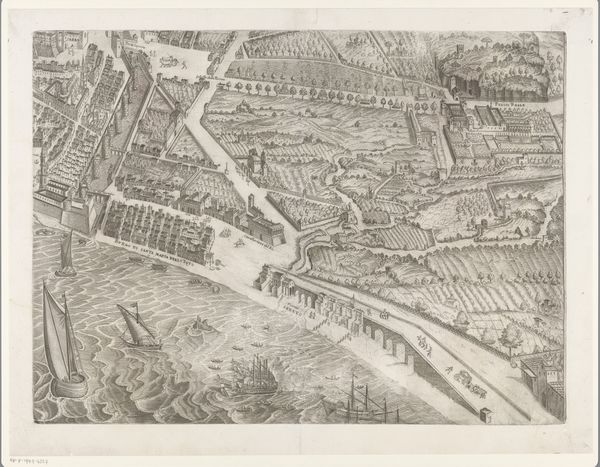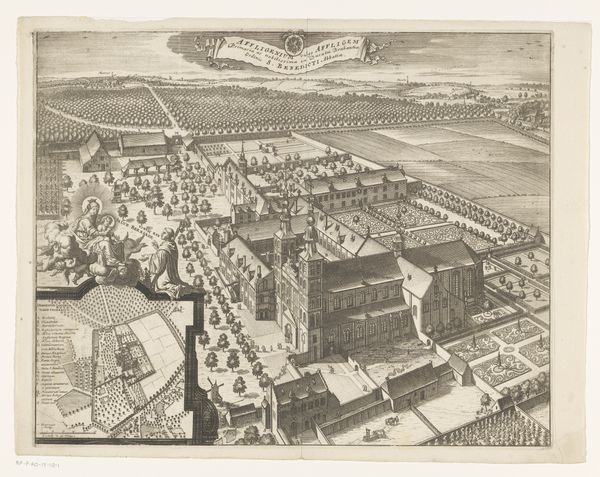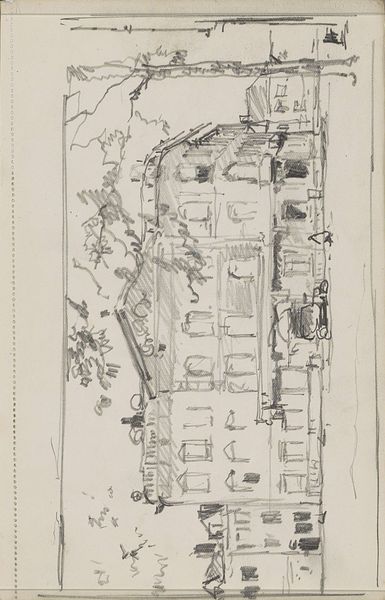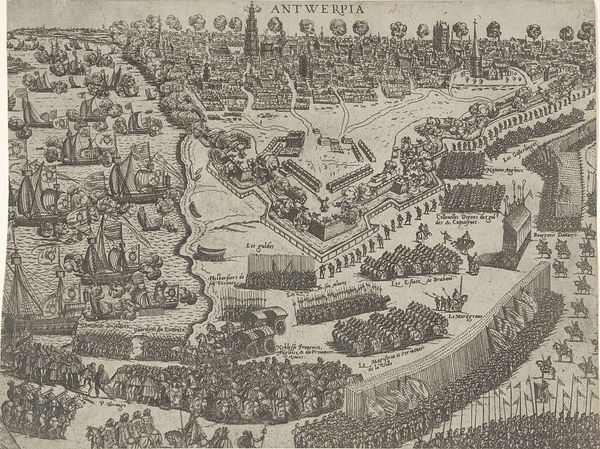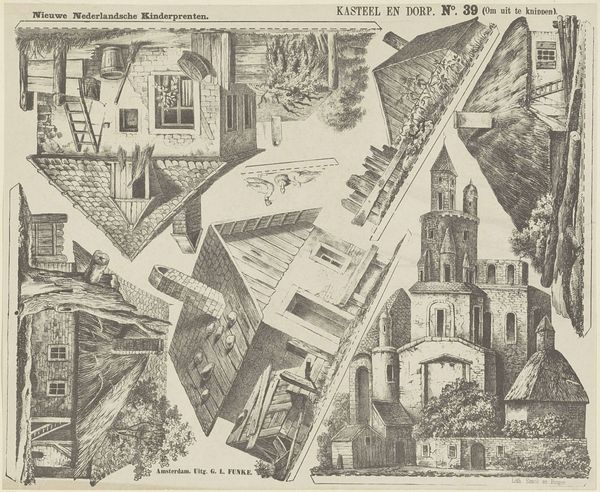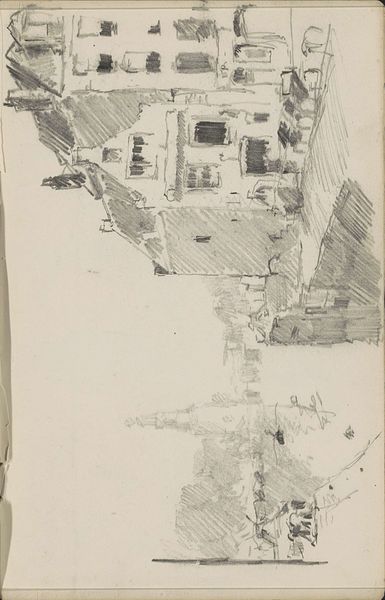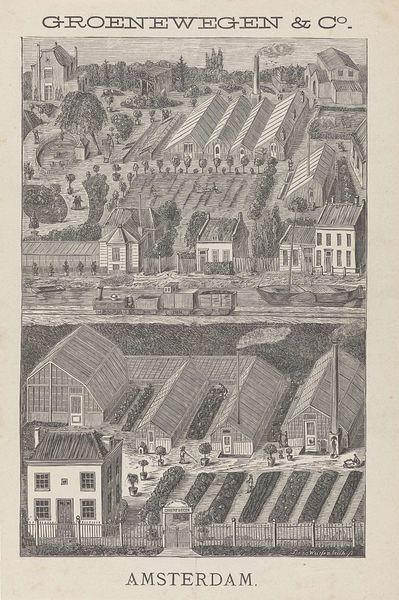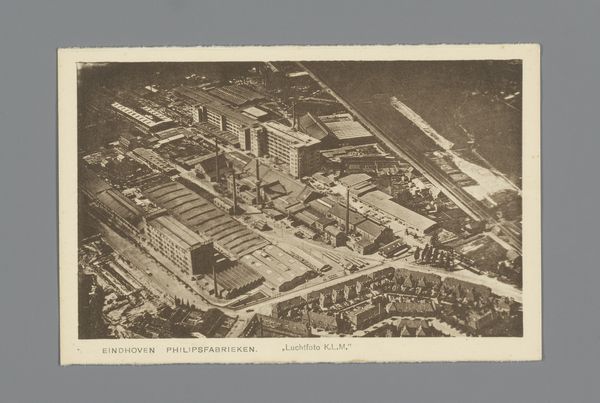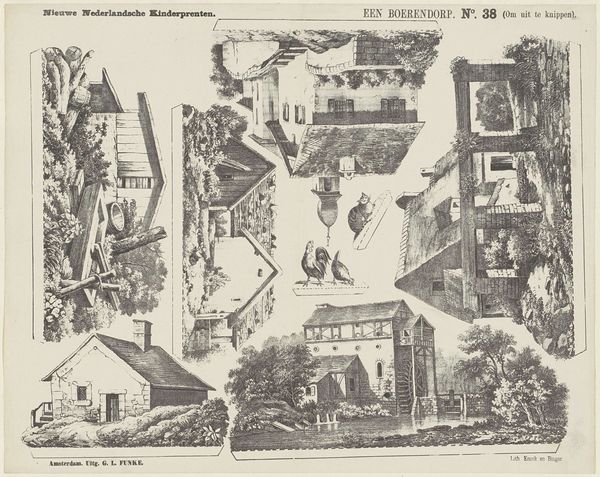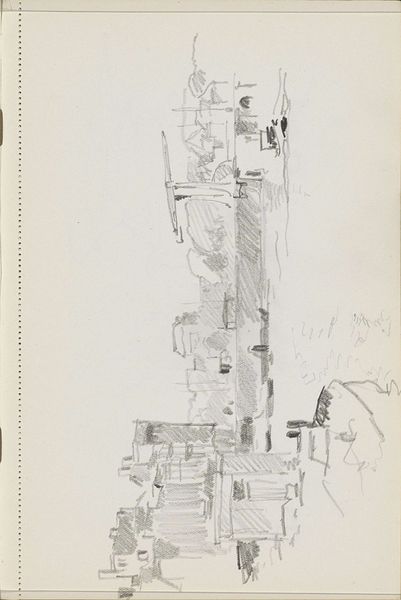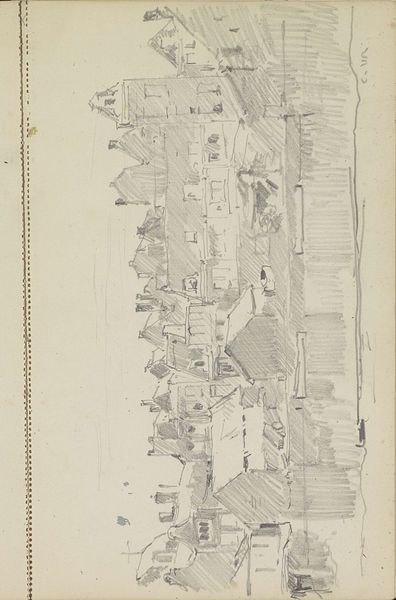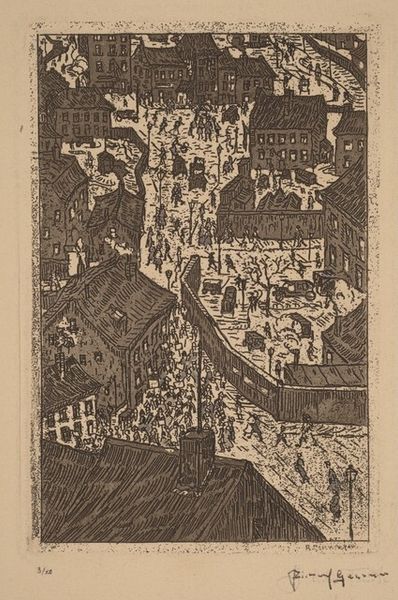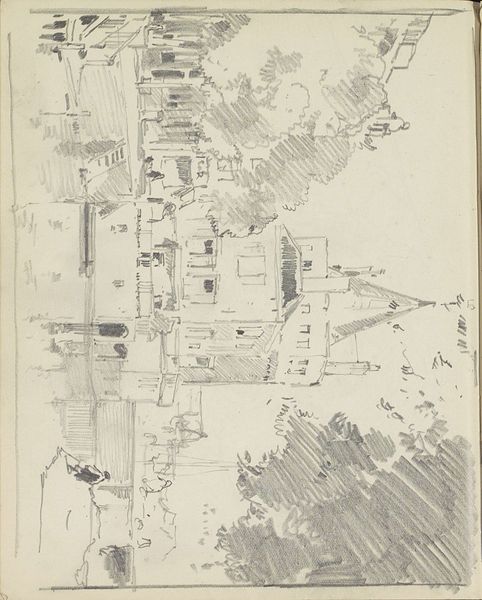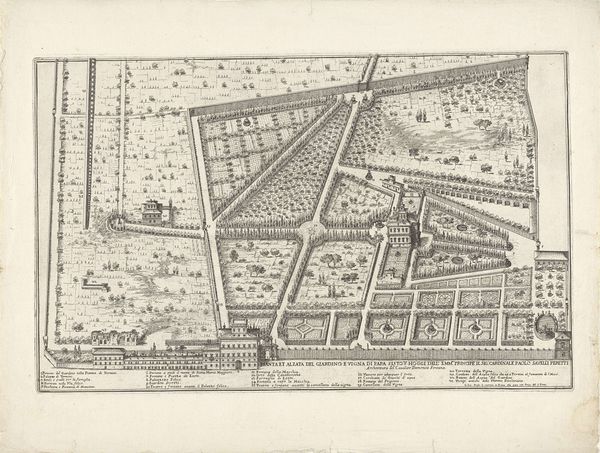
drawing, print, pencil
#
drawing
# print
#
pencil
#
cityscape
#
realism
Dimensions: Image: 295 x 238 mm Sheet: 410 x 297 mm
Copyright: National Gallery of Art: CC0 1.0
Editor: This print, simply called *Untitled (American Town)* by Agnes Potter Lowrie, is so intriguing! I’m drawn to its slightly detached perspective, almost like viewing a miniature world. What do you see in this piece? Curator: It’s interesting you say “miniature world,” because to me it suggests a coded memory. The sharp perspective, yes, creates a sense of distance. But that distance, that cool gaze, might speak to something deeper about how we view the “American Town” itself. What is included? What is omitted? Editor: That's a great point. It does feel very selective. There’s no bustling activity, just these still, solid structures. It’s also interesting that it doesn't feature people or social spaces, which is almost uncanny. Curator: Exactly! This seemingly straightforward cityscape becomes an arena for our projections. We see the houses, the roads, but what do they represent? Are they emblems of community, prosperity, or perhaps something more ambiguous? Notice the details, their careful placement and shading. These visual clues serve almost as allegorical symbols. Editor: So the choice of detail itself becomes significant? Curator: Precisely! Think of the artist not merely as a recorder of place but as an interpreter, deliberately constructing an image imbued with cultural meaning. It might be useful to consider its historical moment and the prevailing visual languages that shaped its message. Does the image conform to, or perhaps challenge, conventional visions of American life? What feelings and attitudes did this town planning bring to Lowrie? Editor: Wow, I never considered that the lack of people might be a powerful symbol. It’s a great example of how absence can speak volumes. Curator: Indeed. And by exploring these absences, we can uncover the latent anxieties and aspirations embedded within seemingly simple representations of the "American Town." Editor: This has completely changed my view of the print. Thanks for pointing out the cultural significance.
Comments
No comments
Be the first to comment and join the conversation on the ultimate creative platform.
